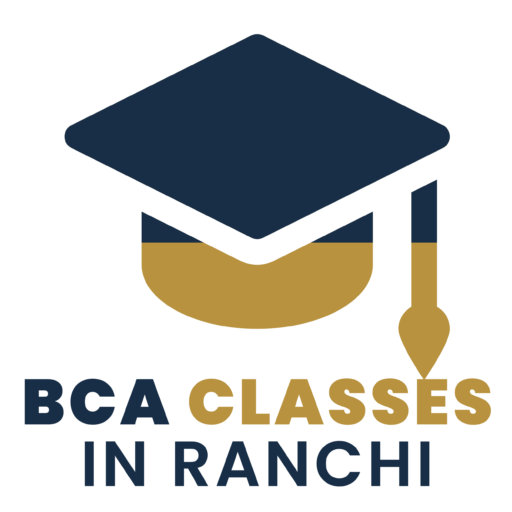Understanding the BCA Semester System
The Bachelor of Computer Applications (BCA) program is structured around a semester system that divides the curriculum into multiple segments, typically spanning six semesters over three years. Each semester comprises a mix of core subjects, electives, and practical courses that are designed to provide students with a well-rounded education in computer science and applications. This structure allows students to build upon their knowledge progressively, ensuring that they develop a strong foundation essential for more advanced topics in subsequent semesters.
The curriculum is thoughtfully divided into theoretical knowledge and practical skills. Core subjects often include programming languages, database management, web development, and software engineering, while electives may allow students to explore areas like mobile app development or data analytics. The variety of subjects helps students understand diverse aspects of computer applications, preparing them for various career paths in the tech industry. Understanding these subjects is crucial, as grasping foundational concepts in the early semesters is vital for mastering complex topics later on.
Assessment in the BCA semester system typically involves a combination of assignments, practical projects, and written exams, providing a comprehensive evaluation of a student’s grasp on the coursework. Assignments encourage independent research and application of concepts, while practical sessions help to reinforce theoretical knowledge through hands-on experience. Exams serve as a formal evaluation of students’ understanding and retention of the material covered throughout the semester. Each of these components plays a significant role in determining a student’s overall performance and progression in the BCA program.
Overall, the semester system in BCA is designed to promote continuous learning and adaptation, ensuring that students are well-prepared for future challenges in their academic and professional journeys. Success in this program demands not only engagement with the material but also a solid understanding of the foundational concepts introduced in the early semesters.
Creating an Effective Study Plan
Developing a personalized study plan is a crucial step for Bachelor of Computer Applications (BCA) students aiming to excel in their semester exams. To begin with, it is essential to assess your current understanding of each subject. This can be achieved through a self-evaluation, which involves reflecting on past performances, identifying strengths, and recognizing areas that require additional focus. Understanding your starting point will allow for a more targeted approach as you progress through your studies.
Once you have an assessment in place, it is vital to set realistic and achievable goals. Having a clear idea of what you aim to accomplish by the exam date serves as motivation and direction. Break down your overall objectives into smaller, manageable targets. This could involve setting specific goals for each week or subject, allowing you to monitor your progress and adjust your study plan as needed.
A key aspect of creating an effective study plan is breaking down the syllabus into manageable study sessions. Consider segmenting each subject into topics and allocating time based on difficulty level and your personal interest in the material. For instance, subjects that you find challenging may require more hours per week, whereas those you are more comfortable with might need less time. This tailored approach not only makes learning more efficient but also cultivates a balanced study schedule.
Additionally, utilizing tools and resources can significantly enhance your study plan. Calendars, planners, and digital apps can assist in organizing your study sessions and setting reminders. Incorporating study techniques such as the Pomodoro Technique or active recall can further optimize your learning experience. By employing these strategies, BCA students can create a comprehensive study plan that systematically leads to success in their semester exams.

Effective Study Techniques and Resources
Preparing for BCA semester exams requires a strategic approach to studying in order to enhance learning and retention. One of the most effective study techniques is active recall. This method involves actively retrieving information from memory rather than passively reviewing material. For instance, instead of merely reading a textbook, students can create flashcards or practice quizzes to test their knowledge. By forcing the brain to recall information, students can significantly improve their retention and understanding of complex topics.
Other
Another beneficial technique is spaced repetition, which entails revisiting study material at intervals over a period of time. This approach helps consolidate knowledge and minimizes the likelihood of cramming before exams. Students can use apps or software designed for spaced repetition, allowing them to systematically review previously learned concepts while incorporating new material. This consistent reinforcement contributes to long-term retention, essential for subjects like programming and database management in the BCA curriculum.
Visual aids are also instrumental in the study process. Diagrams, charts, and mind maps can help students visually organize information, making it easier to understand and recall. For instance, when studying software development, flowcharts can illustrate the logic of algorithms, while mind maps can demonstrate the connections between different programming concepts. Utilizing visual tools caters to diverse learning styles, particularly for those who are visual learners.
In addition to these study techniques, several resources can enhance the study experience. Recommended textbooks are invaluable for providing foundational knowledge and detailed explanations. Online platforms, such as educational websites and YouTube channels, offer tutorial videos that can further clarify concepts. Additionally, study groups are a great way to foster collaborative learning, where peers can share insights and tackle challenging study topics together. By combining effective study techniques with appropriate resources, BCA students can optimize their preparation for semester exams and develop a deeper understanding of the subject matter.
Exam Day Preparation and Strategies
On the day of the exam, the focus shifts to practical strategies that can significantly enhance performance. The significance of proper rest and nutrition in the days leading up to the exam cannot be overstated. A well-rested mind is crucial for optimal cognitive function. Aim for a solid night’s sleep prior to the exam, as this facilitates better concentration and memory retention. Proper nutrition on exam morning is equally vital; choose a healthy breakfast that is rich in proteins and complex carbohydrates to sustain energy levels throughout the day.
Time management during the exam is another critical aspect to consider. Begin by quickly reviewing the exam structure and the distribution of marks for each section. Allocate time according to the weight of each question. For instance, if a particular section holds more marks, ensure ample time is reserved to answer those questions thoroughly. Practicing this strategy during preparation can instill confidence and efficiency on the exam day.
While navigating through the exam, encountering difficult questions can induce anxiety. To combat this, employ strategic techniques such as skipping challenging questions initially and returning to them later when more clarity may be present. This approach not only saves precious time but also alleviates stress, allowing candidates to tackle questions with a fresher perspective.
Conclusion
Moreover, maintaining a positive mindset is instrumental in fostering success. Engaging in deep breathing exercises and focused meditation, both before and during the exam, can significantly reduce anxiety levels. These techniques enhance concentration and promote a calm, collected approach. Remember that every exam is an opportunity for growth, and maintaining an optimistic outlook can help improve performance. Overall, combining effective exam strategies with a positive mindset prepares candidates to excel in their BCA semester exams.
Read Our Latest Blog
Emerging Technologies Every BCA Student Should Know
Phone Number: +91-7488456170
Email ID: abhishek@eepl.me
Our Platforms:
Digilearn Cloud
EEPL Test
Live Emancipation
Follow Us on Social Media:
Instagram – EEPL Classroom
Facebook – EEPL Classroom
Stay connected and keep learning with EEPL Classroom !








